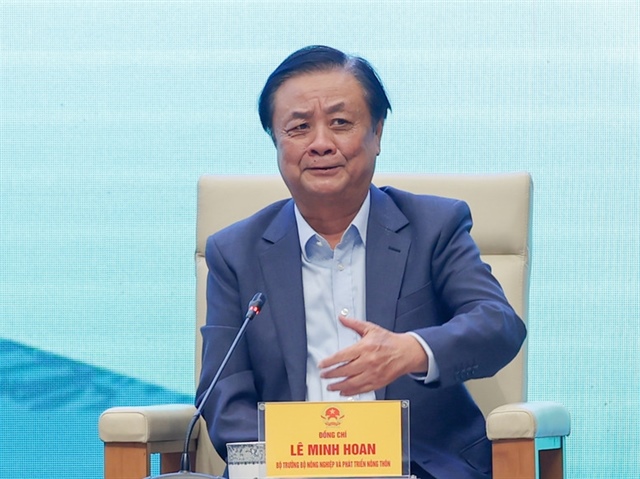According to a report by the Ministry of Agriculture and Rural Development, Vietnam exported approximately 9.18 million tons of rice in 2024, with an estimated turnover of $5.75 billion. Compared to the previous year, rice exports only increased by 12.9% in volume, but the value surged by 23%.
The country’s rice industry also set a historical record in terms of both output and value since 1989 (the first year Vietnam exported rice) up to the present. Notably, Vietnam has become the first nation globally to produce large-scale high-quality and low-emission rice on one million hectares.
At the conference, “Prime Minister Dialogues with Vietnamese Farmers 2024,” held on the morning of December 31, Mr. Le Thanh Long from An Giang Province shared issues related to the goals of emission reduction, the development of the carbon credit market, and the Project for Sustainable Development of one million hectares of specialized high-quality and low-emission rice associated with green growth in the Mekong Delta region.
Accordingly, Mr. Long asked the government about its solutions to promote the carbon credit market and implement the one-million-hectare rice project in the coming time.

Minister Le Minh Hoan shares the story of carbon credits in the one-million-hectare high-quality rice and emission reduction project in the Mekong Delta. Photo: VGP |
In response to the farmer’s question, Minister of Agriculture and Rural Development Le Minh Hoan said that An Giang Province has been very proactive in implementing the one-million-hectare high-quality rice project. In the pilot models, An Giang reported a 20-30% reduction in production costs, which would increase farmers’ profits. This is a very positive result.
Regarding carbon credits, the Prime Minister has directed the development of mechanisms and policies for this commodity market. However, Minister Le Minh Hoan emphasized that the carbon credit market is a novel concept for both the world and Vietnam. Therefore, the ministries are working together to propose to the Government for issuance.
Along with that, he also noted that we should not focus on how much these credits can be sold for but instead on the immense benefits that this project brings, which are more useful for Vietnam’s agricultural production.
“For instance, straw can be made into pellets or used as a preparation for the next crop. The carbon credit project aims at a broader and more comprehensive goal, not just the monetary value of the credits. I’m sharing this so that farmers can understand the objective and significance of the carbon credit project,” shared Minister Hoan.
Previously, Minister Le Minh Hoan acknowledged that the one-million-hectare high-quality rice project in the Mekong Delta is yielding positive results for rice farmers. This is considered a revolution to develop the rice industry more robustly and broadly and build the brand of Vietnamese low-emission rice globally.
The head of the agriculture sector also emphasized the goal of restructuring the rice industry sustainably, adapting to climate change, and following the trend of global green consumption.
He pointed out that sustainable agricultural development should not only focus on yield and output but also aim to reduce production costs, improve rice quality and value, ensure environmental protection, and safeguard farmers’ health.
Therefore, the Minister proposed that authorities, businesses, and cooperatives must accompany farmers. Businesses should commit to purchasing rice at prices higher than the market rate to encourage farmers to join cooperatives, create incentives for cooperation, and increase profits. Authorities and committees need to stand side by side, listen, and promptly address difficulties, thereby building trust and fostering farmers’ attachment to the production chain.
Tam An
– 15:18 31/12/2024
















